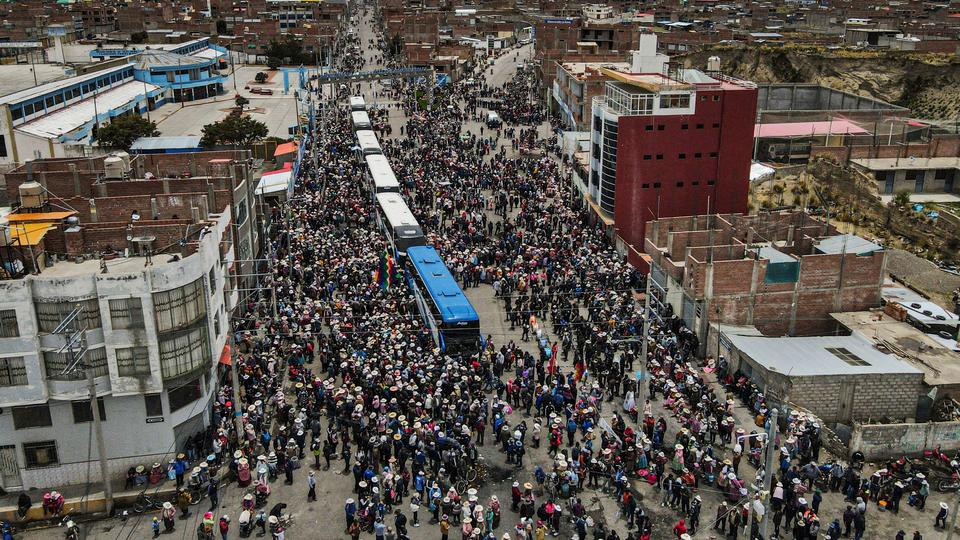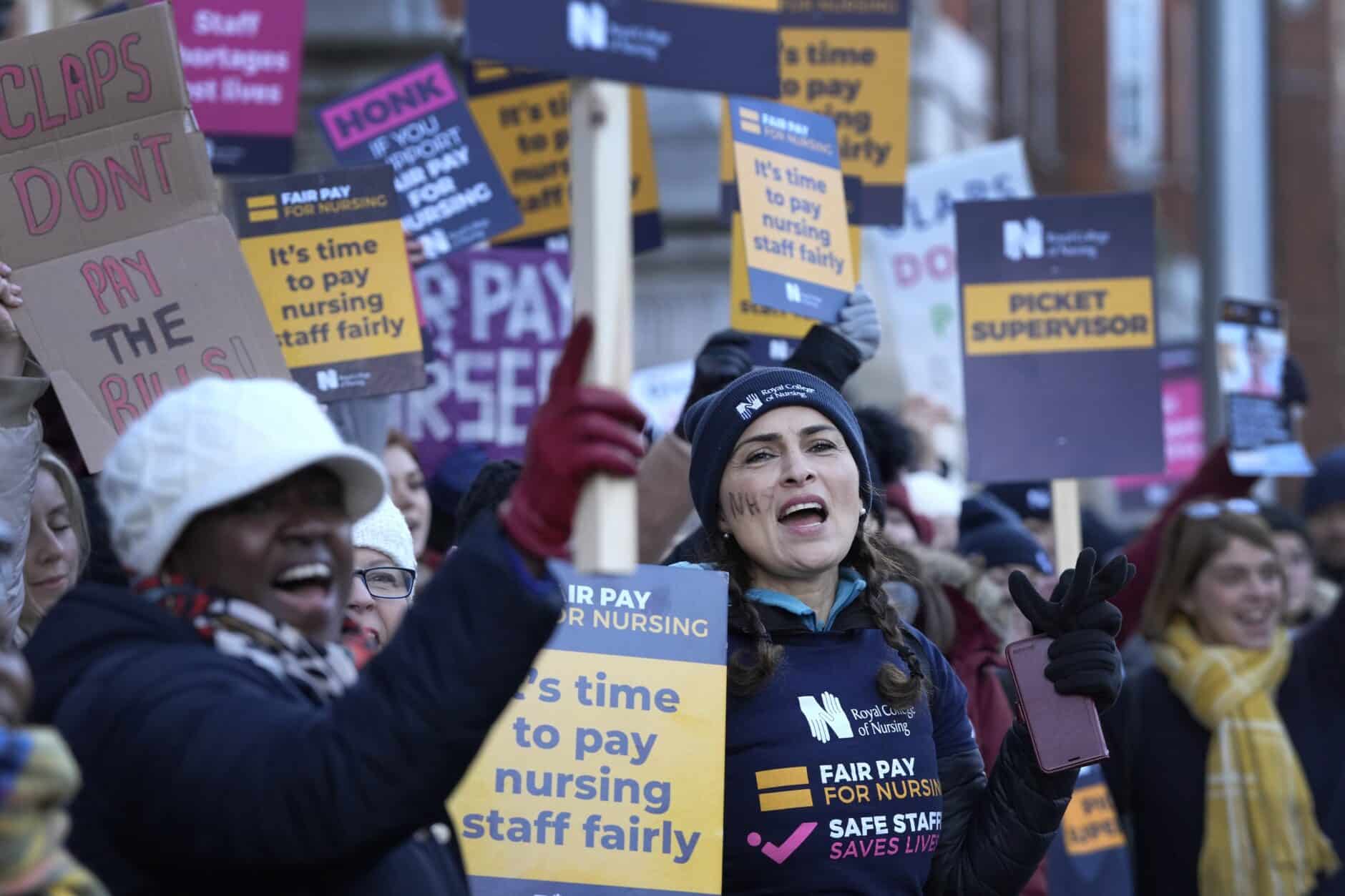FEMICIDE
Mexican Mom Faces Loss, Corruption And Impunity In ‘A Nation That Kills Ladies’Jan 17, 2023

Based on the United Nations, excessive charges of femicide, mixed with a poor monitor report in bringing perpetrators to justice – notably the wealthy and highly effective – have made Mexico probably the most harmful nation for ladies in Latin America. However a grieving mom is set to seek out justice for her murdered daughter, in opposition to the chances.

Based on the United Nations, excessive charges of femicide, mixed with a poor monitor report in bringing perpetrators to justice – notably the wealthy and highly effective – have made Mexico probably the most harmful nation for ladies in Latin America. However a grieving mom is set to seek out justice for her murdered daughter, in opposition to the chances.
At 8:35 p.m. on June 18, Saturday, Patricia Garcia acquired a name telling her that her daughter, Frida Santamaria Garcia, had been injured and was within the hospital.
Frida had spent the day working in a reception corridor the place a christening was happening, her mom recounted in a cellphone interview from Sahuayo, a metropolis within the western Mexican state of Michoacan.
“I instantly known as her relative, who labored along with her, to ask if he knew something. He known as my daughter’s cellphone, nevertheless it was her pal, Juan Paolo N., who answered,” García mentioned.
When she arrived at Santa María Sahuayo Hospital, García realized her daughter had been shot. She is instructed that Frida was left for lifeless after her cellphone was stolen. The bullets pierced the younger girl’s lung and liver.
“It was probably the most horrible second of my life,” mentioned Garcia. “A couple of minutes later, the physician instructed me that my daughter had died.”
Frida, at 24, nonetheless had her complete life forward of her when she was brutally quick with a firearm.
Her grieving mom mentioned, “She was a really humble particular person with an enormous coronary heart. She cared for the well-being of her household and pals. She was unconditional and dependable. She was distinctive.”
Frida had spent the day working in a reception corridor the place a christening was happening, her mom recounted in a cellphone interview from Sahuayo, a metropolis within the western Mexican state of Michoacan.
“I instantly known as her relative, who labored along with her, to ask if he knew something. He known as my daughter’s cellphone, nevertheless it was her pal, Juan Paolo N., who answered,” García mentioned.
When she arrived at Santa María Sahuayo Hospital, García realized her daughter had been shot. She is instructed that Frida was left for lifeless after her cellphone was stolen. The bullets pierced the younger girl’s lung and liver.
“It was probably the most horrible second of my life,” mentioned Garcia. “A couple of minutes later, the physician instructed me that my daughter had died.”
Frida, at 24, nonetheless had her complete life forward of her when she was brutally quick with a firearm.
Her grieving mom mentioned, “She was a really humble particular person with an enormous coronary heart. She cared for the well-being of her household and pals. She was unconditional and dependable. She was distinctive.”
Frida’s pal denied involvement in her loss of life. However on December 15, Juan Pauls abruptly retracted his denials and admitted that he shot his girlfriend, saying it was not supposed.
His retraction and the delay in his confession prompted the Jequilpan Regional Public Prosecutor’s Workplace to cut back the fees in opposition to him to homicide.
This gave the accused the best to a abstract authorized trial and he was sentenced to a few years’ imprisonment with the opportunity of parole. The punishment for involuntary manslaughter in Mexico is rather more lenient than for these accused of femicide.
On this nation of almost 127 million individuals the place, in line with the authorities, greater than 10 girls are murdered day-after-day, the Frida Santamaria García case is one other instance of the challenges households of the victims face of their pursuit of justice.
Frida’s relationship with Juan Paulo started three or 4 months earlier than her homicide, in line with her cousin, Samantha Morett García. “She discovered about their affair solely every week earlier than she was shot,” Samantha revealed in a cellphone interview from Jiquilpan.
Whereas the Garcia household was grieving the sudden lack of Frida on the night of the tragedy, Juan Paulo had already left town and fled to Guadalajara, the capital of the neighboring state of Jalisco.
It was the start of a harrowing authorized impediment course for the sufferer’s household. The case file submitted within the days following her homicide on the Public Prosecutor’s Workplace in Jiquilpan didn’t advance the case. “He did not even inform me I had a proper to see a sufferer counselor,” García mentioned, revisiting the agonizing days when the household, shocked and agonized by their sudden loss, first confronted the restrictions of Mexico’s justice system.
The companies of a personal legal professional wouldn’t be sought till 5 weeks had elapsed, lastly permitting the investigation to proceed. “We realized that the investigation was not completed correctly, neither in substance nor in kind,” mentioned the sufferer’s mom.
The household finally sought the assistance of NGOs, together with the feminist group MAPAS, who suggested the household to talk to the press and arranged demonstrations calling for justice for Frida. The group denounced the shortage of correct police studies or witness statements. In the meantime, the Public Prosecutor’s Workplace insisted on treating her case as a attainable suicide.
When the suspect is the son of a former mayor within the Frida case, there may be one other necessary reality that can not be ignored: the accused, Juan Paolo, is the son of the previous mayor of town of Sahuayo, Alejandro Amezcua Chavez. Alfredo Annaya’s son-in-law, former Secretary for Financial Improvement within the authorities of the Governor of Michoacan State.
Mapas was fast to denounce the “cynicism” with which the judiciary is dealing with the case in opposition to a well-connected suspect.
“Till January 1, Santamaria Garcia’s household and the feminist group MAPAS believed that the state legal professional normal’s workplace was working to get justice for Frida,” mentioned Sofia Blanco, a spokeswoman for the group.
“We now know that since December 20, she has been working to reclassify this feminine homicide as ‘manslaughter’, with out informing the household or their lawyer, in order to not give them time to problem the choice earlier than the listening to scheduled for January 4,” she mentioned. .
The Feminist Affiliation additionally denounced the silence surrounding the case. Neither the legal professional normal nor the governor of Michoacán state has spoken out in favor of the decision [classifying this crime as] Blanco mentioned.
When the suspect is the son of a former mayor
It additionally denounced the Michoacán State Superior Court docket for failing to “make sure the sufferer due course of” and for doing nothing to forestall the prosecution from decreasing the fees.In a press launch tracing the authorized twists and turns of the case, García’s household famous that “At present, in Mexico, an individual convicted of femicide can obtain a jail sentence of as much as 50 years; within the case of manslaughter, he faces three years in jail with Risk of parole.”
“We subsequently perceive why Juan Paulo’s father and son-in-law acted with impunity and corruption, to redefine and cut back the fees associated to this crime.”
Per week after it was introduced that the fees for her daughter’s killer had been diminished, García mentioned she had appealed the choice, regardless of the threats the household and several other witnesses confronted, and regardless of makes an attempt to torpedo the case by individuals associated to the suspect.
‘Whole injustice’ Mexico’s worsening disaster of gender violence and the state’s failure to reply has led protesters and activists to dub the nation the ‘femicide nation’.
Based on official figures, about 3,750 girls had been murdered and almost 100,000 disappeared in Mexico in 2021. Of those murders, just one,004 have been investigated as “femicide.” This failure has been denounced by NGOs corresponding to Amnesty Worldwide, who say the shortage of prosecutions leads to “violations of girls’s human rights to life, bodily integrity and their households’ rights to judicial safety”.
Mexico’s Nationwide Fee for the Prevention and Elimination of Violence In opposition to Ladies (CONAVIM) has estimated that 94% of those courtroom instances have been dismissed.
“Investigations are usually not carried out in line with the intercourse of the sufferer, they aren’t adopted up, and corruption prevents the killers from bringing the killers to justice,” Blanco defined.
On January 4, demonstrators gathered outdoors a courthouse in Morelia, the capital of the state of Michoacan, declaring that each homicide of a lady that goes unpunished is one other instance of Mexico being a “femicide nation.” They demanded the utmost sentence for Frida’s alleged killer, and all different victims of the ladies’s murders.
“The Jiquilpan Public Prosecutor’s Workplace and the Public Prosecutor’s Workplace most popular to guard Juan Paulo’s security,” Frida’s mom mentioned at a press convention that day. “Now he could be launched on parole. It is a full injustice.”
A protester in Mexico Metropolis holds an indication that reads, in Spanish, “Mexico isn’t a rustic, it’s a mass grave with a nationwide anthem” protesting violence in opposition to girls on March 8, 2021. © Rebecca Blackwell, AP’s
“Cotton Subject” challenge
Regardless of the shortcomings of the Though there is no such thing as a public prosecutor’s workplace or the judicial system, femicide convictions in Mexico do exist. “In terms of killing girls by individuals whose households have political energy, all the pieces will get sophisticated,” Blanco mentioned, referring to the 2020 case of Jessica González Villasenor, who was murdered and whose alleged killer, Diego Orek, was from a rich household. with political connections.
The younger man, who was 18 on the time of the crime, lived within the rich Altozano neighborhood of Morelia. SinEmbargo, a Mexican information web site that makes a speciality of investigating hyperlinks between energy and arranged crime, describes him as a “mirrey,” a slang time period used to explain a younger man from a rich household who lives a lifetime of luxurious, partying, and extra. The sufferer was a instructor from a working class household.
On January 11, Aurick pleaded not responsible. The decision is anticipated on January 27. If discovered responsible, he might resist 50 years in jail. If not, he will likely be launched.
“He has already taken all the pieces from us, and no punishment will carry my sister again to us,” Cristo Villasenor, the sufferer’s brother, instructed El Heraldo de Mexicodaily. Nevertheless, he famous, if the utmost sentence had been to be handed down, it might set a precedent.
“It must be a mannequin for society, particularly for misogynistic males who assume they’ll take girls’s lives with out paying the implications,” he mentioned.
Corruption and impunity are the 2 principal causes for the excessive charges of femicide, in addition to the variety of disappearances, for ladies in Mexico. In 2009, the Inter-American Court docket of Human Rights issued a landmark ruling condemning the nation’s negligence in investigating the deaths of eight ladies who had been tortured, raped, and murdered and located a vacant lot in Ciudad Juárez, a metropolis in northern Mexico that has been known as the femicide capital of the world.
The decision of what grew to become referred to as the “Cotton Subject” affair included a powerful rebuke to the Mexican authorities, forcing it to take motion. Since then, a number of committees have been set as much as get rid of violence in opposition to girls and a particular public prosecutor has been appointed.
However as said within the January 2020 report, “Can a regulation finish femicide in Mexico?” , regardless of “praising a brand new regulation designed with a gender perspective, which ensures a life freed from violence for all girls… it’s being perpetrated with impunity throughout the nation. Authorities and police establishments proceed to look the opposite method, or in some instances are themselves concerned on this new kind of criminality.
Mexico is probably the most harmful nation for ladies in Latin America and holds the unlucky report for the very best variety of femicides within the area, in line with the United Nations. However again in 2007, Mexico pioneered the inclusion of femicide in its penal code, stating: “The crime of femicide is dedicated by anybody who deprives a lady of her life for causes of intercourse.”
The Latin American Mannequin Protocol for the Investigation of Gender-Associated Homicides of Ladies recommends that each one violent deaths of girls attributable to felony motives, suicide, and accidents be analyzed from a gender perspective to find out whether or not or not there are gender-related causes. Explanation for loss of life.
After the loss of life of Frida Sahoyo, family and pals of Juan Paulo requested, amongst different issues, {that a} gender perspective not be utilized to the investigation.
“What’s ‘gender-neutral’ justice on earth? Justice for all besides girls?” requested Blanco, of the MAPAS group, in feedback to native media.
“We characterize half the inhabitants!”
This text has been translated from the unique in French.
The younger man, who was 18 on the time of the crime, lived within the rich Altozano neighborhood of Morelia. SinEmbargo, a Mexican information web site that makes a speciality of investigating hyperlinks between energy and arranged crime, describes him as a “mirrey,” a slang time period used to explain a younger man from a rich household who lives a lifetime of luxurious, partying, and extra. The sufferer was a instructor from a working class household.
On January 11, Aurick pleaded not responsible. The decision is anticipated on January 27. If discovered responsible, he might resist 50 years in jail. If not, he will likely be launched.
“He has already taken all the pieces from us, and no punishment will carry my sister again to us,” Cristo Villasenor, the sufferer’s brother, instructed El Heraldo de Mexicodaily. Nevertheless, he famous, if the utmost sentence had been to be handed down, it might set a precedent.
“It must be a mannequin for society, particularly for misogynistic males who assume they’ll take girls’s lives with out paying the implications,” he mentioned.
Corruption and impunity are the 2 principal causes for the excessive charges of femicide, in addition to the variety of disappearances, for ladies in Mexico. In 2009, the Inter-American Court docket of Human Rights issued a landmark ruling condemning the nation’s negligence in investigating the deaths of eight ladies who had been tortured, raped, and murdered and located a vacant lot in Ciudad Juárez, a metropolis in northern Mexico that has been known as the femicide capital of the world.
The decision of what grew to become referred to as the “Cotton Subject” affair included a powerful rebuke to the Mexican authorities, forcing it to take motion. Since then, a number of committees have been set as much as get rid of violence in opposition to girls and a particular public prosecutor has been appointed.
However as said within the January 2020 report, “Can a regulation finish femicide in Mexico?” , regardless of “praising a brand new regulation designed with a gender perspective, which ensures a life freed from violence for all girls… it’s being perpetrated with impunity throughout the nation. Authorities and police establishments proceed to look the opposite method, or in some instances are themselves concerned on this new kind of criminality.
Mexico is probably the most harmful nation for ladies in Latin America and holds the unlucky report for the very best variety of femicides within the area, in line with the United Nations. However again in 2007, Mexico pioneered the inclusion of femicide in its penal code, stating: “The crime of femicide is dedicated by anybody who deprives a lady of her life for causes of intercourse.”
The Latin American Mannequin Protocol for the Investigation of Gender-Associated Homicides of Ladies recommends that each one violent deaths of girls attributable to felony motives, suicide, and accidents be analyzed from a gender perspective to find out whether or not or not there are gender-related causes. Explanation for loss of life.
After the loss of life of Frida Sahoyo, family and pals of Juan Paulo requested, amongst different issues, {that a} gender perspective not be utilized to the investigation.
“What’s ‘gender-neutral’ justice on earth? Justice for all besides girls?” requested Blanco, of the MAPAS group, in feedback to native media.
“We characterize half the inhabitants!”
This text has been translated from the unique in French.















